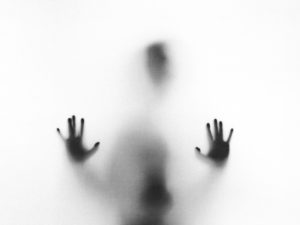by Jenny Rose | Feb 2, 2017 | Contribution, Emotional Intelligence
This week’s post is suspended between two stories. The first one is the old Greek myth of Sisyphus.
Sisyphus was a crafty and deceitful king who craved complete power. In his pursuit of power, he offended many men and gods and was eventually punished by being sent to the underworld and forced to roll a huge boulder up a steep hill. The boulder was enchanted, however, to roll back down the hill (over Sisyphus, in some versions) just before it reached the top. Thus, Sisyphus was doomed to repeat the same unending and futile task forever.

Photo by Tommy Lisbin on Unsplash
Sisyphus has captured the imagination of many writers, philosophers and artists, and there are several variations and interpretations of his story. If you’re interested, you can follow the link to to Wiki and read more.
Sisyphus is on my mind this week, not only because his story suggests to me the inevitability of rising and falling cycles, but also because his punishment was to forever try and fail.
His punishment was to forever try.
Huh.

Photo by Casey Horner on Unsplash
I’m a product of a culture that taught me certain core truths about life. One has a responsibility to help others. Everyone has to do things they don’t want to do. One must never give up. One must try one’s best. We’re all in a train behind a little engine that puffs, “I think I can, I think I can, I think I can,” and that’s the right place to be, the admirable, ethical, moral, adult, acceptable, responsible, side-of-the-angels place to be. Good people try and try and try. They don’t despair, they don’t give up and they don’t say it’s too hard, I can’t or, most unforgiveable of all — I won’t.
No is not an option.
The truth is one of the things I least like about myself is that I can always be counted on to try my best. I don’t mean work hard. I mean try hard. Trying is certainly hard work. It’s sucked up most of my life in terms of time and energy. A lifetime of trying, though, has produced less of value to me, and I suspect to others, than an hour of work at writing, dancing, gardening, making love, playing with a child or even scrubbing the kitchen floor.
In the last ten days, I’ve been living right alongside Sisyphus. In the last ten days, I’ve meticulously gone through headlines, articles, links, petitions, news and requests for action in my email, not once but two or three times a day, because I want to help. I want to do something that matters. I want to make a difference. In the last ten days, I’ve intentionally and consciously been present, engaged, interactive, interested in what my partner is thinking and talking about, which has been largely political news, because I want to be a good partner. I want to demonstrate I’m brave and strong and intelligent enough to be part of the conversation going on in the world.
In the last ten days, I’ve privately and quietly despaired, lost sleep, felt inadequate, lost my center, lost my peace, felt gnawing anxiety and been deeply ashamed of who I am.
I’ve tried so hard.
I’ve failed so hard.
It’s not working. I can’t live like this. I’ve been pushing that rock up the hill as bravely as I can, but it just keeps rolling back down. I’m exhausted, bruised, battered, my fingernails are torn and I’m quickly losing any desire to be engaged with life.
However, oddly, one thing is working.
A couple of weeks ago, I went to a self-defense class at a local community center. The activities director happened to be there, and on an impulse I introduced myself and asked him if he’d be interested in working with me to start a community dance group. We fell into conversation, one thing led to another and as I write this, advertising is in process, flyers are getting printed, and somehow, I’m scheduled to start up a dance group in March, a thing I’ve long wanted to do in order the create the kind of healthy, inclusive community I’m starving for.
I didn’t try at all. It just kind of happened and I went along for the ride. I’ve spent hours and hours building dance playlists, but that wasn’t trying. I wanted to do it. I loved doing it. Music instead of current news? Lead me to it!
So what is it with this trying thing that’s driven so much of my life? I can’t remember a single time trying hard resulted in an outcome I wanted. It seems to me whatever happens, happens. Things always and inevitably turn out the way they turn out. I may have occasionally bought some time. I may have kept things glued together with my frantic trying longer than they would have otherwise, but was that a good thing, or in the end did I just make the cost higher for myself and everyone else?
All the really good things I can remember in my life just happened. I didn’t plot, plan, manipulate, force or otherwise try. I was simply living my life.
And what about the punishment piece? Sisyphus, by all accounts, was not a nice man, and I don’t waste much pity on him, but what about me? Endless, futile trying certainly feels like a punishment. Why have I always accepted that? Why haven’t I been able to choose to stop?
The truth is I try so hard because I feel like I have to make up for what a difficult, noncompliant, hypersensitive, disappointing, needy, dramatic, sensual person I am. I know I’ll never please or get it right, so all I have is knowing I tried as hard as I could. The world is filled with talented, creative, loving, generous, kind people. They don’t have to try to make the world a better place. The world is a better place because they live in it.
I’m not like them. I’m broken.
It’s not like I can just not try to make up for being broken!
If I don’t try, then what is there?
Which leads me to the second story, which I can’t find this morning, but I know is here somewhere in my library!
A student approached the master and said, “I work with disabled children and their families. Master, there’s so much difficulty for these people! I want to help, to make things better for them! What should I do? How can I best relieve their suffering?”
The master replied, “With no thought of help.”

Photo by Stephen Leonardi on Unsplash
All content on this site ©2017
Jennifer Rose
except where otherwise noted
by Jenny Rose | Dec 22, 2016 | A Flourishing Woman, The Journey
It’s taken me a long time to come in peace to Winter Solstice.

Photo by Aaron Burden on Unsplash
Just a week or two ago, I wrote my mother that I’ve always felt desolate during the Christmas season, but I didn’t know why. I couldn’t say what would make it perfect. Somehow, in nearly fifty Christmases in my memory, I’ve never gotten it right. In the last years, without children or significant other, I’ve always chosen to work and just pretend it wasn’t happening.
This year, quite unexpectedly, is different.
Human beings are strange creatures. We create a winter celebration around the sun’s rhythm. We do fire rituals and tell stories during the shortest day of the year in order to woo the sun back for the next cycle of life and growth.
Then we superimpose a religious festival on top of that old pagan celebration and talk about miracles, new life, humble beginnings, peace, joy, faith, hope and all the rest.
Then we agree the season is really about commercial opportunity. We develop traditions and expectations involving food, drink, parties, decorations, lights and presents. We emphasize giving to others out of our own resources, whether it be money, time or kindness, but we don’t talk about whether we have any resources to give out of.
Then we build it up big with music, movies, stories, a guaranteed ‘vacation’ and a fat man in a red suit, and we throw all these elements together while we drown in advertising that informs us what we must have, what we want and what we must buy to prove our love for others.
We mix this all up with broken and dysfunctional families, loss, poverty, depression, addiction, mental illness, homelessness, hatred, bigotry, late nights, obesity, isolation, obligation, duty, over scheduling, exhaustion, health problems, insomnia, guilt, shame, debt and (in some places) winter weather, smile at strangers and say, “Merry Christmas!” Or, if we want to be politically correct, “Happy Holidays!”
Ho ho ho!
Yikes!
There’s nothing I need from Christmas. For years, I’ve been focused on being alone because I failed in my marriage, financial limitations (another kind of failure), having adult children who are living their own lives (because I taught them to!), and my introversion, which includes being uncomfortable with crowds, noise, stimulation and drinking.
This year, I’m laughing at myself. This year, I realize it’s not that Christmas doesn’t want me. It’s that I don’t want it!
Winter Solstice, however, is a different story. Today is Winter Solstice. I’m sitting in a small two-room second floor space at the top of a steep, uneven staircase in our one almost two hundred-year-old farmhouse. The sun is coming through a pattern of frost on the window behind me and shining on my hands as I type. A crystal hanging in the window throws glinting rainbows over the walls and sloping ceiling. A clock ticks at the head of the stairs. Now and then I hear my partner putting wood in the wood stove, directly below me. These rooms are unheated, but the brick chimney rises up through them and radiates heat all winter. I’ve a garland of twined artificial ivy, red berries and gold fringe, made years ago, hanging from a shelf. I have an old candle lantern somebody gave me with a gold pillar candle in it and another garland of red glass beads and ivy wrapped around it. There’s a simple string of red lights in the other room, where my work station is, and when the early dark comes I plug it in.

Photo by Teddy Kelley on Unsplash
Outside the windows, one looking north and one looking south, are trees; the smooth snow-covered slope down to the pond, punctuated by stalks of last year’s cattails; the two-lane road, covered in a thick layer of ice, salt and sand; and the driveway, covered in a thick layer of ice, wood stove ash and cat litter for traction. Crows enliven the trees around us; the ravens grace the air outside my windows, coming to check for victims of our mouse traps, which my partner throws out on the slope for them; and jays call harshly, forcing the smaller birds away from the bird feeders by the driveway.
This week we’ve had snow, and then on top of the snow we had freezing rain and subzero temperatures. I had to run to the post office to mail a package to my mother for Christmas, and I floated gingerly over the icy road, feeling the tires slip. The patient sleeping trees were backlit by the low sun and every twig, every pine needle, every single stem and blade was coated in sparkling ice, preserved by the polar air. I don’t think I’ve ever seen anything quite so beautiful, and I’ve carried the picture in my mind ever since.
It’s Winter Solstice in central Maine. No tree, no stockings, no pile of presents, no special food or drink. It’s Winter Solstice, and I’m alive. The trees are skimmed with diamonds, the low sun is shining, I’m writing and my hands are comforted by my mug of tea. A lifetime of favorite Christmas music plays from an iTunes playlist I created. I’m quiet. I’m at peace. I’m with two people I love — myself and my partner. I know joy. Later, when I go swimming, the sun will shine in the poolside windows and I’ll swim through sunlit rippled water as I do laps. If the pipes freeze in the kitchen sink again, we can do dishes in the bathtub. If the power goes out I can read by the light of my gold candle.
Tonight, on the longest night, I’ll lie snug in bed in our unheated room. We’ll read for a bit, our hands getting colder and colder as we hold our books in the frigid atmosphere, and then we’ll turn out the light and go to sleep while the house pops and cracks around us in the cold and whoever is moving around in the roof (Squirrel? Chipmunk? Mice? Wood rat?) scratches and scrabbles over our heads.
It’s Winter Solstice, and I wish you peace, and joy, and a still pause in which to be.
The light returns.

Photo by Das Sasha on Unsplash
All content on this site ©2016
Jennifer Rose
except where otherwise noted
by Jenny Rose | Dec 8, 2016 | Power
I’m thinking about money today. This is not new. Sometimes I think most of my life has been consumed by thoughts about money. Well, not thoughts so much as panic, guilt, shame and worry.

Photo by Teddy Kelley on Unsplash
There’s a heavy snowstorm here in central Maine. I’ve just been standing looking out my attic window, watching it fall on the huge elderly maples, bare as old bones, and the grass and the street and our little black Hyundai car in the driveway.
We found out this morning the car needs about $1,300 worth of work. Almost exactly what it’s worth. Time to make choices.
We went out to walk, my partner and I. I didn’t cover my head, and when we got home my hair and eyelashes were clotted with wet snow. My son, who had gone out to run errands, was backing into the driveway as we came home. He’d been meditating in a ditch, not being able to get in touch with us, after sliding off the extremely slick road and into a guy wire securing a telephone pole. Some kind soul drove by and pulled him back onto the road. Fortunately, my son wasn’t dented, but the car was. This, needless to say, does not improve the resale value!

Photo by Caley Dimmock on Unsplash
I also took time this morning to buy Christmas gifts, so I’ve been absorbing all the jingle bells, merry merry and buy buy online. Quite a contrast, all the glitz and glitter, deals and special buys and impossibly joyous advertising, to the silent world outside the window, grey, smoke blue, brown, dark green and the ivory snow. Over the years, I’ve done less and less gift exchange for Christmas. There are only two people left with whom I do it, not because I don’t love giving gifts but because of financial stress and my resentment of the pressure to consume.
I’ve always had a dreadful relationship with money. My earliest understanding of what it was became inextricably tangled with anguish, fear, rage and power issues. As a child, I was always afraid there wouldn’t be enough. As an adult, I was locked in a belief that money defined me. To have money was to be successful, and to not have it was to be a failure. There was a well-known and well-defined path to follow: Graduate high school with top grades and scholarships, obtain a college education in something employable and lucrative, get a job with benefits, and never NEVER touch the principal. If you must borrow, pay off ASAP and stay out of credit debt. Save for retirement, own your own home and pay off the mortgage, take vacations and have a nice car.
However, during my lifetime the world has changed considerably. The middle class from which I came has all but vanished. I didn’t want to go to college, but did it because it was expected. I didn’t get a good scholarship and felt guilty every day I was there, and my guilt was made worse by the fact that the only subjects interesting me were religion, literature, history and the like. After two years, I dropped out. (Note: Dropouts are NOT successful. Ever.) I’ve been working ever since.
Then I got divorced (credit card debt), saved for retirement but cashed a couple of those accounts for emergencies, lost all my investment money to a crooked contractor, never took a vacation or even a plane ride out of my own pocket, and never in my life bought a new car. Retirement? You must be kidding. What are the chances there will even still be social security by the time I’m 65?
This is in no way a remarkable biography, I realize, but for me there’s a red stamp across every page of it that says FAILURE.
I’ve only in the last two years really understood how much power I gave money to define who I am and what I’m (you guessed it) worth. The idea of monetary value, like sexism, is embedded in our very language. There’s no escaping it. In my culture, the failure to make and spend money in ever increasing amounts is unpatriotic, unattractive, unsuccessful and sometimes illegal.
This is all wrong. I feel like the little boy who said out loud the emperor had no clothes. Everyone was appalled and shushed him, lest the emperor hear and be offended.
I know myself to be an intelligent, heartful, creative, empathetic, honest person. The numbers in my bank account have absolutely nothing to do with those qualities.
The most important things in my life are my healthy relationships. Again, the numbers in my bank account have no influence over my ability to love and be loved and connected. (Hint: A relationship dependent on money doesn’t fit my definition of healthy. Just sayin’.)

Photo by Senjuti Kundu on Unsplash
My ability to be present, entertain joy, laugh, create and learn has nothing to do with money.
My enormous talent for life has nothing to do with money.
Unfortunately, our broken system does require money for health care and the necessities of shelter, food and water. To be human is to need these basics. Not having money for them is the experience of increasing numbers of Americans and the vast majority of others in the world. I myself don’t have the money to buy health insurance. Does that mean we’re all failures?
Of course not.
Not only that, but we’re exhausting our global resources and when no amount of money will buy food and water we’ll all starve together, regardless of our bank balances.
So, yeah, we’re going to have to figure out what to do with the car. We’ll have to get a loan and work on finding a good used vehicle that can deal with our weather. It will mean a monthly car payment. No idea how we’ll do it, but I know we’ll find a way. Before that, we may have to do some work on the Hyundai in order to get top price for it.
But none of that is about me, or what I’m worth in the world, or what I can do or be. It’s all just static and distraction. It’s not failure or success, it’s just that cars age out and need to be replaced. If I could go out and buy a brand-new Subaru, it wouldn’t be failure or success, either. It would be CONVENIENT and LUCKY.
Here are a couple of Christmas presents from me to you. The first is a quote and the second is an old wisdom tale from the Hindu tradition, one version of which is in More Ready-To-Tell Tales from Around the World, edited by David Holt and Bill Mooney, and told by Jim May.
“It is no measure of health to be well adjusted to a profoundly sick society.”
–Jiddu Krishnamurti
The Ruby
A holy man awoke, as usual, in the hour before dawn, on his mattress of grass. A warm wind moved across the land, bringing the scent of dust, animals, early morning cooking fires and blossoms, fresh and sweet in the cool morning.
The holy man was beginning his morning prayers when an excited young peasant ran up to him. “Master, where is it?”
The holy man raised an inquiring eyebrow.
“I had a dream,” said the peasant, calming himself. “In my dream, I met a holy man at the edge of the village. And here you are! The holy man gave me a precious jewel.”
“Ah, yes,” said the holy man. He bent and pulled from beneath his mattress of grass a ruby the size of his fist. “You must mean this. I have no use for it.”
He handed it to the peasant, who had never held more than two copper coins in his hand. The peasant raised the ruby between himself and the rising sun and his awed face was washed in red shadow. He walked slowly home, his eyes fastened on the ruby. He entered his simple hut and sat down on the dirt floor with the ruby before him.
All day he gazed, enchanted, and dreamed of what the ruby could buy him. He forgot his morning prayers. He didn’t eat, bathe, or take care of his livestock. He didn’t scythe grass for hay. When night came, he didn’t say his evening prayers, make a meal or lie down and rest. He sat before the ruby, worshipping.
The next morning the peasant took the ruby in his hand and went out, searching the fields for the holy man. When he found him, he handed the ruby back to him.
“This is not the precious jewel I want. Teach me what you know that made it so easy for you to give it away.”
All content on this site ©2016
Jennifer Rose
except where otherwise noted
by Jenny Rose | Dec 1, 2016 | Connection & Community, Emotional Intelligence, Shadows
Tribal shaming is one of the most powerful ideas I’ve been introduced to in the last years. A friend sent me a Facebook post by the author Elizabeth Gilbert (author of Eat, Pray, Love). Here’s a link to that post. You don’t need to be on Facebook to read it, just press “Not Now” when it asks you to sign in.
It’s a long post, but it’s also life changing. Get ready for insight and clarity you’ve never had before about your tribe on every level, from family to country.
In (very) short, the concept comes from Dr. Mario Martinez, who wrote a book called The Mind-Body Code. Gilbert provides a link to a podcast by Dr. Martinez in her post. Gilbert was so stunned by Dr. Martinez’s work that she posted about it, and now her post is all over the net. Clearly, others find it as significant as I do. As the political situation unfolds day by day here in America and all kinds of people react in all kinds of ways, I keep thinking about the power of tribal shaming.
In this context, the word “tribe” means any group with which we identify. Tribe is family, church, community, culture, nationality, team, workplace, etc. Tribal shaming examines the power of the tribe. It’s not a new idea, of course. We’ve studied cults, gangs, religious sects — all kinds of groups — in order to understand the choices we make and how they’re influenced by those around us. What I hadn’t thought about before was the invisible destructive power our tribe(s) have over our ability to live well.

Photo by Liane Metzler on Unsplash
One of the greatest motivators for us as humans is the desire for connection to others. Our earliest experience of connection takes place in our family of origin, or in the context of whoever raised us, even if just people in an institution. From infancy on, we’re each surrounded by tribal cultures and norms, tribal rules, and the differentiation of our tribe from others. This shows up in an overwhelming number of ways: Economically, geographically, religiously, educationally, etc.
Tribes provide us with connection, identity, meaning, and, hopefully, security and safety. They help us define ourselves and shelter us from an unkind world. Connection is a deep need for human beings, and without it we don’t survive. We know there are all kinds of consequences for people who have no early sense of tribe, from attachment disorder to failure to thrive to severe mental illness — and those only if the child survives in the first place.
Tribal connection works very well for people who feel they belong in the tribe(s) in which they find themselves.
But what happens when we don’t fit into our tribe? What happens when we ask questions and break rules? What happens when we don’t accept the tribe’s authority? What happens when the tribe abuses us?
Tribal shaming, that’s what.

Photo by Stefano Pollio on Unsplash
Now, you might say, so what? So you break away from your family, group, church, whatever. Big deal. People do it all the time. It doesn’t matter.
That’s true. It’s also true that at a casual glance we’re all just fine. We move, we change jobs, our beliefs and views change, we get divorced, people come and go out of our lives. We spend time on social media, catch a movie, watch TV, have a drink, take a pill, buy a pint of ice cream, light up another cigarette. Maybe those closest to us see a shadow of addiction, workaholism, people pleasing, depression, insomnia and anxiety, but that’s nothing, right?
I don’t believe that for a single second.

Photo by Joshua Earle on Unsplash
It does matter. Tribal estrangement is a deep wound that never stops bleeding, and it doesn’t much matter why the estrangement exists. If we feel cast out from our tribe, it hurts. We may grieve, we may rage, we may become ill, but there will be consequences for this kind of amputation. One hundred friends on Facebook can’t make up for it.
It hurts so much, in fact, that many of us self-sabotage so we can go back, because the thing about tribe is they’ll always take you back if you fail. Now think about this for a minute. You can always go back if you fail.
The power of tribal shaming touches us all. I’ve seen it play out very powerfully in my family, and I bet you have, too. Right now, huge populations of people are on the move in the world, compelled by war, politics and the basic necessities of food and water. Millions more will be displaced by climate change. Social, geographic and economic boundaries are threatened. Our sense of self and tribe is undergoing intense pressure as we fight for space and resource.
Through this blog, I’ve made a friend in Nigeria. Her experience as a woman in a large city in a foreign (to me) country is eye opening. It’s easy to forget how life is for many other people in many other places. Today we might be able to eat, have a job, or have a roof over our head. Today we might have a tribe, no matter how small, or maybe several tribes give us a sense of belonging and comfort, but tomorrow is another day, and much of the world is closer than we are to the precipice of famine and chaos.
The concept of tribe, like the concept of resource, is fluid. We define it ourselves. Right now in America, we’ve made money the most important resource. What will happen when a cup of clean water or a mouthful of food becomes the only resource that counts? What will happen if tribal shaming becomes tribal sharing and we decide to create a tribe of all life on earth, including the planet itself?
In the meantime, though, we clearly feel it’s effective to create small, rigidly defended tribes with small, rigidly defended rule sets and spend time making bombs of all kinds to throw over our palisades. Whatever happens, we must not allow the threats of education, science, literacy, critical thinking, equality or any kind of difference to exist. People must toe the line or get out — one way or the other.
Us against them and the outcasts in between. It works so well, doesn’t it?
All content on this site ©2016
Jennifer Rose
except where otherwise noted
by Jenny Rose | Sep 8, 2016 | Power

Photo by Bewakoof.com Official on Unsplash
I recently had a discussion with a young friend who’s going through a hard time.
I listened and asked questions, and did my best to enter into her experience. My agenda wasn’t to rescue, fix, or advise, just to let her know I cared and help her think about options.
My intentions were good, but I walked away feeling as though I’d only irritated her and made things worse. Ever since, I’ve been questioning what I said and how I handled this interaction. Was I patronizing? Condescending? Obnoxiously optimistic? Aggressively parental? Didn’t I listen well?
Or maybe my questions were the problem, not because they were bad questions but because they were good questions. I’m reminded of people in my life who have approached my distress with the kinds of questions that made me want to hang up the phone or slap their face. Their questions challenged me to break out of the shrinking cage I was in. They challenged me to take control, take responsibility, face my fear or think outside my usual box.
I’m not sure why, but when I’m good and miserable, or at panic stations, or swept up in powerlessness, I want someone to agree with me. It’s hopeless. I’m helpless. It will never get better. I made mistakes, bad choices, stupid decisions and now I’m paying a price I deserve to pay. I’ve dug a hole so deep I can’t get out without some kind of divine intervention. I have to wait for someone to rescue me.
Sitting here writing this it sounds silly, but it’s not silly when I’m in it. We’ve all had times like this. What I know is that my best friends in crisis are the ones who metaphorically kick me in the butt. They won’t walk down the pity path with me. They won’t agree that it’s all over because I screwed up or made bad choices. They don’t admit the past was apocalyptic and the future will be catastrophic.
These people keep redirecting me back to what I can do right now to help myself, and away from everything else, and sometimes they’re not gentle about it.
This is tricky because it’s counterintuitive, at least to me. When I’m faced with a problem, I want to square right up to it, obsess, throw myself at it, beat my head against it and leave the rest of my life unoccupied. It’s either an all-out wrestling match or I eat ice cream out of the carton (a big carton!), stop taking showers, binge watch ‘Buffy the Vampire Slayer’ all night and sleep all day.
Neither of these approaches has worked for me. The only thing that has ever worked is to identify where my power is right now and let the rest go. I don’t know why that works. I don’t know how it works, but I know it does.
When I was a low-income single mom, what this meant was realizing summer was ending and the boys would need new winter coats I couldn’t afford, and we would need groceries a lot sooner than that, but I had no money. And yes, I was working. At one point I worked two jobs and attended school.

Photo by Mitchell Orr on Unsplash
Anyway, I developed a habit of shaping the day around what I could do instead of what I couldn’t do. I tried not to think about the next day, the next week, the next winter. I figured out what we’d eat that day from what we had, and I did what I could do — all the things that can be done without money. Like playing with Legos on the living room floor, or taking a walk, or reading aloud to the boys, or doing laundry, or working in the garden, or scrubbing the kitchen floor.
Some days were so hard I just lived five minutes at a time. It was all I could handle.
My kids are in their twenties now. All those five minutes, all those one-day-at-a-times passed and we weren’t homeless, we weren’t without food and we always managed winter coats, thanks to Goodwill. I have no idea how it all worked. I didn’t know then and I don’t know now.
Now, it’s true I found jobs, got trained and educated, did without things like cell phones and cable TV. I did what I could to help myself through those years, and I had a lot of outside help, too. But my point is I tried not to get stalled with my nose touching a brick wall. I tried to look in another direction — in a direction where I could make choices. Doing that didn’t make the brick wall disappear, but somehow it allowed me to move past it.
Getting back to my friend, I tried to ask questions about where she did have power, but she felt powerless in every direction and the questions only reinforced the feeling instead of helping her reconsider her situation. I left the conversation feeling upset and frustrated and decided I needed to take a step back, give my friend space and let it all unfold.
Interestingly, in the time between that conversation and this minute, my friend got what she needed from someone else, made some hard choices and now sees her way ahead, at least for a few steps.
What I’ve learned from this is that no matter how much I love and care for someone, no matter how much I want to share what I’ve learned in life, sometimes I just can’t be useful or effective. That doesn’t mean, however, that my loved one won’t get what they need from someone else. I’m trying hard to persuade myself this doesn’t make me a failure, but it’s uphill work. Additionally, I have a sneaking suspicion that part of what I feel is nothing more than injured pride. As long as I’m confessing, there might be jealousy in there, too.
I’ve also relearned the thing I wanted to teach. It was clear to me I couldn’t be an effective support to my friend, I couldn’t make her feel better, I had nothing to offer she could use. However, two cords of wood were sitting in our driveway, so my partner turned on music and we stacked it in the barn. He and I cleaned out a closet and I got my fall/winter clothes handy. I was scheduled to work on Labor Day weekend and the day after, so I showed up for work and did my best. I wrote a few pages of my current book and I wrote this post. Today I swim. It was in the middle of all this that my friend came to me with the beginnings of her own solutions to her own problems.
Maybe my love and concern were only an added pressure for my friend. Maybe the most helpful thing I did was step back and live my own life. That, after all, is where my power is.
I just wish it didn’t feel so inadequate.

Photo by Jan Phoenix on Unsplash
All content on this site ©2016
Jennifer Rose
except where otherwise noted













